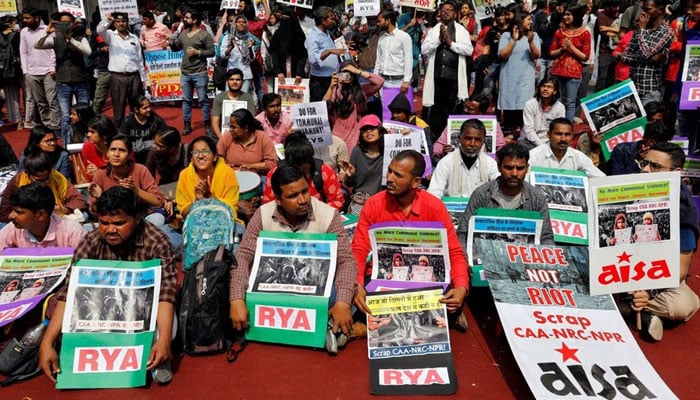
DM Monitoring
Mumbai: Recognising the alleged misuse of terror laws in India, several international human rights organisations have urged the global terrorism financing and money laundering watchdog, the Financial Action Task Force (FATF), to call on the Indian government to stop prosecuting, intimidating and harassing human rights defenders and activists.
The American Bar Association Centre for Human Rights released a report titled ‘The adverse impact of counter terrorism laws on human rights defenders and FATF compliance’, analysing India’s three major terror and money laundering laws – the Unlawful Activities (Prevention) Act, Prevention of Money Laundering Act, and Foreign Contribution (Regulation) Act.
Similarly, three rights organisations – Amnesty International, Human Rights Watch and Security Network – in a joint statement have pointed to the exploitative nature of the terror and money laundering laws in India.
In the statement, the organisations have accused the Indian state of restricting civic space and stifling the rights to freedom of expression, association and peaceful assembly. “Draconian laws introduced or adapted to this end include the Foreign Contribution (Regulation) Act (FCRA), the Unlawful Activities (Prevention) Act (UAPA), and the Prevention of Money Laundering Act (PMLA). Their actions have flouted both FATF’s standards and international human rights law,” the group claims in their joint statement. The American Bar Association, in its 65- page statement, had pointed to the growing trend of non-compliance of the FATF recommendations.
“The report finds that India’s counter-terrorism laws have expanded over time, becoming increasingly vague, and often overturning basic procedural safeguards for defendants,” the report reads.India joined the FATF, an intergovernmental body comprising 40 member countries that is mandated to tackle money laundering, terrorist financing and other threats to the integrity of the global financial system, in 2010. In its first year, the Indian government itself had recognised the risk posed by the non-profit sector as “low”.
The international rights organisations say that things changed since the BJP government came to power in 2014. “The authorities have used overbroad provisions in domestic law to silence critics and shut down their operations, including by cancelling their foreign funding licenses and prosecuting them using counterterrorism law and financial regulations.” The reports were compiled and presented days before the FATF’s Mutual Evaluation Review (MER) concluded on November 3. The MER was to evaluate the anti-money laundering laws and the financing of terrorism in India and the coalition. The American Bar Association has pointed to five different case studies from recent years, including the Elgar Parishad and journalist Siddique Kappan’s cases, to show how terror laws have been misused to crack down on dissenting voices in the country.
In the report, the Bar Association says, “The case of journalist Siddique Kappan and his co-accused – of whom, two are student activists, and another a taxi driver – is one of the starkest illustrations of the misuse of terror funding laws for political means.”
Kappan was in prison for over two years from October 5, 2020, facing multiple charges under the UAPA and the PMLA. He has worked as a journalist for over a decade, and at the time of his arrest, he served as a contributing reporter for a Malayalam-language online portal and was also secretary of the Delhi chapter of the Kerala Union of Working Journalists.